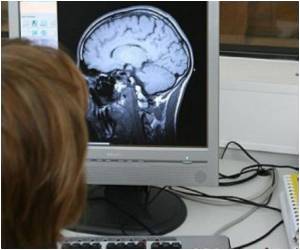G8 health ministers met in London on Wednesday to tackle what experts warn is a dementia time-bomb, with cases set to soar as the world's population ages.

They hope that by forming a common front, the summit will prove the turning point in tackling the disease.
Sufferers of dementia, of which Alzheimer's disease is the most common form, often end up needing full-time care as it attacks their memory, reasoning and other brain functions.
Alzheimer's Disease International warned in a report last week that the number of sufferers is set to surge, trebling to 135 million by 2050, as life expectancy rises around the globe.
Dealing with dementia cost the world an estimated $604 billion (440 billion euros) in 2010, according to the World Health Organization.
Ahead of the conference, British Prime Minister David Cameron called for a worldwide boost in dementia research investment, with Britain set to double its funding to £122 million ($200 million, 146 million euros) by 2022.
Spending on research into cancer dwarfs that on dementia.
University experts, patient networks and representatives from BT, Intel, Nike and GE Healthcare took part in the panel discussions alongside ministers.
The European Union's health commissioner Tonio Borg announced a 1.2 billion euro budget for health research in 2014-2015, including dementia and neurodegenerative diseases.
Dementia causes mood changes and problems with reasoning and communication as well as memory loss.
Most types grow progressively worse and cannot be cured. Medication and therapy are used to alleviate the symptoms.
Sufferer Peter Dunlop, a former medical consultant, told the conference about his experiences and the impact it has had on his work. He said it was common for people to have it for years before being diagnosed.
In a video shown to the conference, Hilary, who married her husband Peter five years ago and was diagnosed with Alzheimer's in 2012, said: "If I'd known I had this before we got married, I would never have married him.
"You realise what it's going to do to your partner... I just wouldn't want to put anybody through that."
British health minister Jeremy Hunt, who is hosting the summit, urged colleagues to redouble efforts to find drugs that can halt or reverse brain decay, to improve diagnosis rates and combat the stigma around dementia.
Citing the battle to tackle HIV-AIDS, he said similar efforts were required to combat dementia, or countries will "bankrupt their healthcare systems".
"As life expectancy goes up, our generation has a unique challenge: will those extra years at the end of our lives be ones we can look forward to with anticipation -- or will they be ones we end up dreading?" Hunt said.
"One in three of us will get dementia. And if we don't do better, for one in three those later years could be years of agony, heartbreak and despair -- not just for those of us with the condition, but for our families, friends and loved ones too."
Source-AFP
 MEDINDIA
MEDINDIA




 Email
Email





